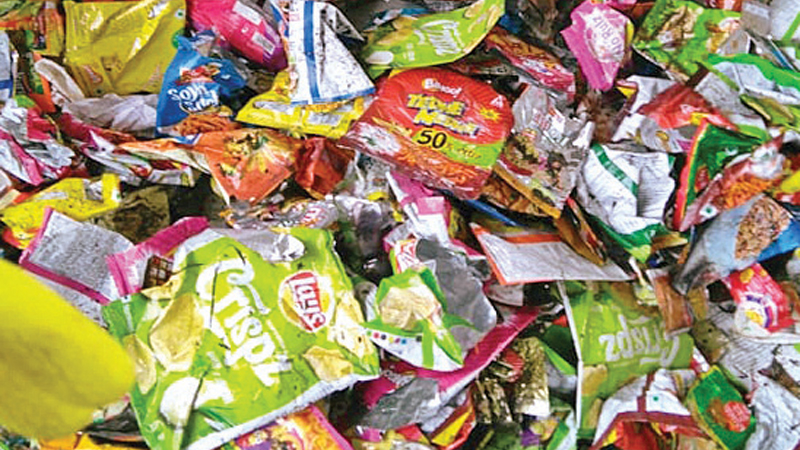By Felicia Nwosu
A time there was when consumers could afford the luxury of buying in bulk, purchasing monthly supplies of their household consumables. The harrowing effect of the economic downturn on their purse and the increasing bills to be paid has made this impossible for the average consumer. Over time, their purchasing power has continued to nose-dive with its shrinking effect on demand. This has unarguably affected the revenue of manufacturing companies whose bottom line is highly dependent on consumer patronage. With the impact of Inflation rapidly eroding consumers’ purchasing power, consumers are left with no choice but to, according to the law of scale of preference, prioritise their buying and stick with the essentials. In response to this development and to entice customers to goods that circumstances have transformed into ‘luxury’, sachetisation of products which was introduced into the Nigerian market by the makers of cowbell milk has become the go-to option. No doubt, this transformation has helped to reshape the face of some leading brands especially fast-moving consumer goods (FMCGs). This was necessitated by the urge to transit from luxury to affordability.
Sachetisation has also become the marketing strategy by some Nigerian FMCG brands to capture some segments of the market, as products and services which were earlier too expensive for consumers are being made available in the bare minimum and necessary quantities. This product differentiation, coupled with enhanced last-mile connectivity and distribution has increased brands’ bottom line while making buying options more available to consumers. This revolution of product survival was introduced to boost inclusion and to help to create a very different engagement bond between the customer and the brands
Idorenyen Enang, President of the National Institute of Marketing of Nigeria, NIMN, explained that the sachet economy did not start today but way back with brands such as Cowbell Milk and Three Crown milk while adding that it is a race between affordability, availability, and willingness to pay.
“It is not so much about sachet economy, it is about the drive for value. you know in practical marketing, you talk about segmentation. when you have segmentation, you have value-for-money for brands in the different segments. Not everybody can afford to stay at the top, and then you have the mainstream. but at some point, a lot of us aspire to be able to do and have something but can’t afford it. It is a race between affordability, availability, and willingness to pay. In that whole equation is the sachet economy because somebody wants to have powdered milk but cannot afford the top one, but still has a bit of it at a price he can afford and reckon with.”
Mr. Enang stated that he does not believe in low purchasing power but in the equation of disposable income which enables consumers to make choices.
“I don’t believe there is anything like low purchasing power. What I believe is that the equation is more about disposable income because that is what will force you to make choices. It is about choices which is also a function of what your own need is, what is paramount in your head and mind, and in the process, in the basket of consumer goods, which one do you prioritise. That is going back to the scale of preference. There can be low purchasing power, if the companies and brands do not have an insight into their consumer, their lives, and what they do, then they will purchase them less but if they do, you will know where to meet them, connect and speak to them, make them use your product. They will come back again, and use, adopt and then become a master of the product.”
Another consummate marketer, Chioma Afe, Group Head, Retail Marketing & Analytics, Access Bank Plc., stated that the disruption of the pandemic has forced brands to reinvent and restrategise on ways to navigate for survival in the floating economy as well as the huge impact of inflation which led to low purchasing power for consumers.
“Innovation is borne out of need and change. The economy across the world has changed and has seen a shrinking of income, but there is also an explosion in some income as well. But for the shrinking incomes which are affected, what businesses have done or afford to do is to find how to innovate to still attract purchases. What you do is to shrink your cost which allows you to either maintain the price at a certain level or when you are an FMCG business, you say ‘rather than packaging at 500ml, let me package at sachet level in smaller quantities. It is more affordable, convenient, and I still have my customers patronizing me.’ What businesses are doing now is they are innovating either through packaging, or differentiated pricing or through promotion, to be able to drive customers and consumers who will still be interested in their product and looking at convenient ways of presenting that to you.
Nsima Ogedi-Alakwe, Chairperson, Corporate Communications, NIMN, noted that the only constant thing in life is change, while humans and their needs remain dynamic.
According to the business leader and marketing strategist, reduction in purchasing power and an increase in economic misery, have revolutionised the FMCGs in Nigeria with the drive for sachet economy to suit the needs of every consumer.
“Human beings are dynamic, food is a fundamental need, food first, but apart from food, care of self is important. When you cannot afford certain things, when you look at the money in your pocket, you have to cut your needs in line with that. Those that have less money pay more attention to quality because they can’t gamble with their money, so there is the tendency to look for low unit packs, which are able to take care of the day, not necessarily the week because I don’t have a lot of money but I still want to satisfy my needs whether it is in the food sector or personal care.”
As prices of goods and services continue to rise beyond the reach of the average consumer, the onus is on the consumer to cut his coat according to his cloth and live with the resources available to him, while hoping that there is a reversal soon. However, one good thing that has manifested more prominently than ever before, due mainly to the economic downturn and Covid 19 pandemic is, the majesty of the consumer!
!






Comment
No comments found.